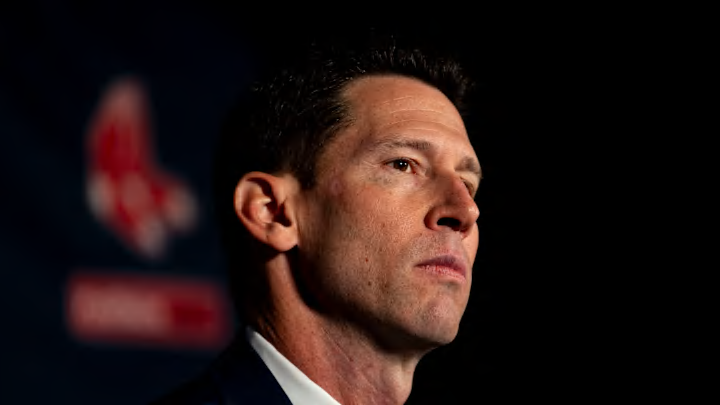Historians ramble about the term "watershed moment, " which applies to an event of historical change. For the Boston Red Sox, such a moment occurred with the selling/trading of Babe Ruth and many other notable Red Sox players to the New York Yankees.
What goes around comes around, and with history eerily repeating itself, on February 10, 2020, the Red Sox dealt Mookie Betts to the Dodgers, which has now been shown to be trading prime rib for a can of spam.
The Dodgers have rescued Boston in the recent past with the sarcastic trade known as the "TheNick Punto Trade." The Red Sox sliced the payroll and dumped an underperforming Carl Crawford. The Big Blue has no problems accepting others' mistakes and, in the case of Betts, a steal that should place them on the top tier of the most wanted poster for baseball.
Since Betts left, the Red Sox have slowly deteriorated from a flagship franchise to a skit for late-night comics. The two franchises are a few beers away, as far as value is concerned. Despite the Dodgers' recent extravaganza of signings, they are still well away from matching the inept New York Mets' staggering payroll.
I remain cautiously optimistic with the Breslow Red Sox
Boston's payroll is now measured in the tenth slot, with a climb expected. Boston gave it a respectable shot at signing the latest shiny keys wunderkind, but lost out to the Dodgers. History will judge the Dodgers' move as brilliant or a fiscal disaster, but they can - like the Red Sox - afford to make budgetary mistakes.
A difference for me is Boston is now in a cycle of mediocrity, and the Dodgers are not. Boston now has the task of extricating itself from a self-induced morass that is the responsibility of senior management. Firing the GM is a sad deflection pattern for poor payroll management, free agent bungling, possible clubhouse strife, abysmal pitching development, and losing the crowd on public relations.
How do you win back the crowd? The best recipe is to place a respectable product on the field, which may require spending and calculated trading. If reports are accurate, the Red Sox were willing to spend time pursuing Yoshinobu Yamamoto, but either had a stopping point or the righty sought out the tinsel town and all the charm, glamor, and decadence it could offer. Give management points based purely on effort.
CBO Craig Breslow will seek out pitching in the following months, which could mean the departure of precious prospects - something the Dodgers had no issue doing. The one that hurts is Tyler Glasnow, also going to the Dodgers. A trade the Red Sox could have made with Tampa. A contract they could have done. A risk they could have taken.
The Red Sox are going "Full Throttle" this offseason, but the only throttling I see is the emotions of a loyal fanbase. The risk taken is exemplified by the signing of Luis Giolito, a serviceable righty who screams out mid to low rotation. A budget-friendly signing, no long-term commitment, and low financial/ contract length risk. Certainly not Shohei Ohtani, Glasnow, and Yamamoto. A slightly pricier version of Corey Kluber, Micahel Wacha, et al.
The Red Sox's latest payroll dump is the trading of Chris Sale to Atlanta, in which Boston handed over $17 M to cover Sale's salary partially and receive a prospect. Boston - in desperate need of pitching - decided to cut bait with Sale rather than risk another possibly horrid season. This was all about LA versus Atlanta as the Braves - like the Dodgers - are willing to assume a risk.
The Dodgers appear to be as manic as the late Robin Williams, while Craig Breslow and the Red Sox take a far more systematic approach to problem-solving. The wait is for the next shoe to drop in Boston.
Breslow is well aware of the team's needs, especially in pitching, and that usually means acquiring a solid top-of-the-rotation arm or best two. The team has a cache of prospect talent that fans tend to overrate, so what Breslow does in the next few months will determine just what the future - 2024 and beyond - will look like. Unless the upgrade in pitching takes place, Boston will continue to be a .500 team.
